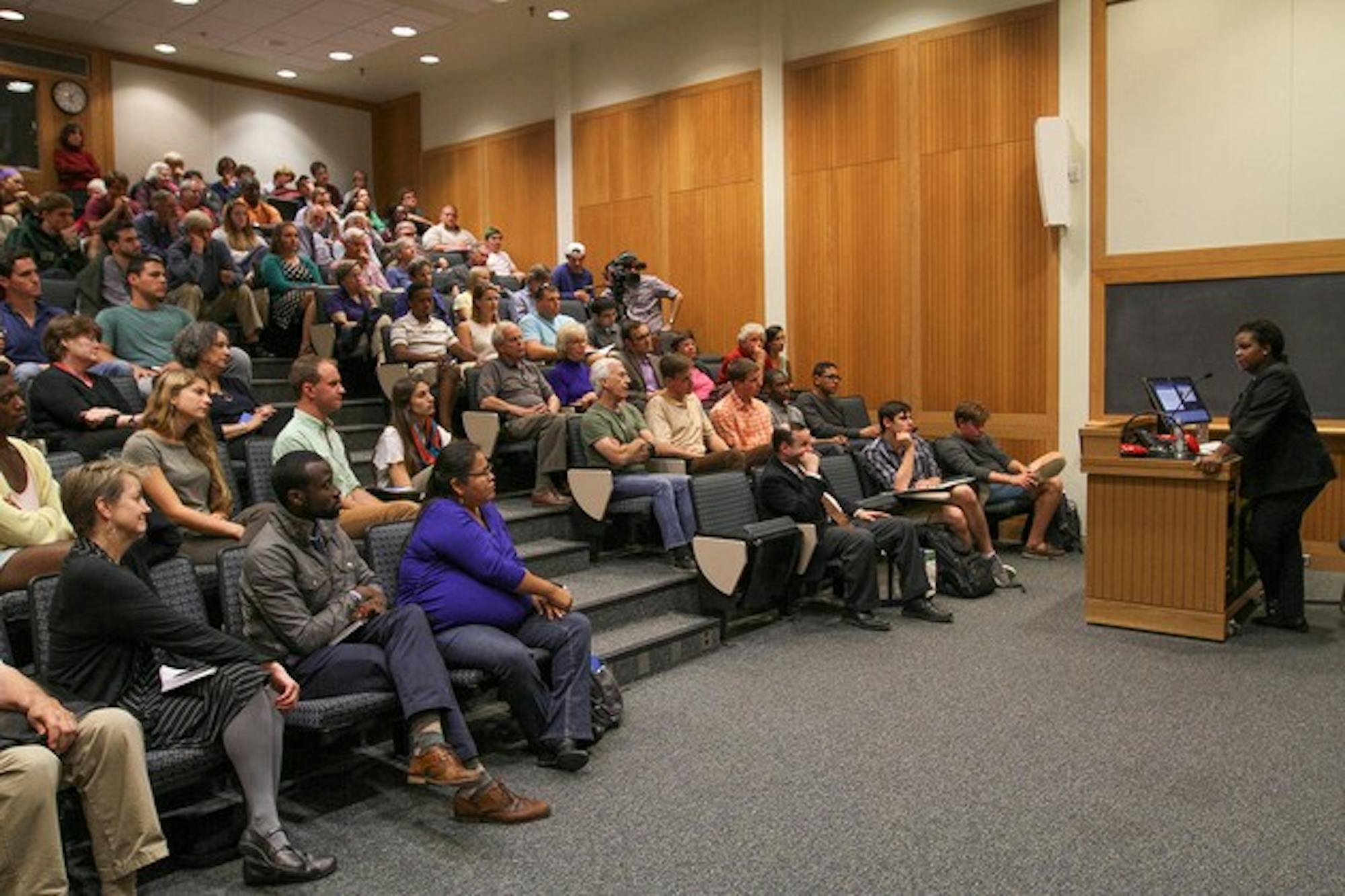Although Gordon-Reed first described the Constitution as a "wonderful document," she said that it was born out of a compromise that created conflicts including the explicit protection of slavery as an institution.
"Before the Civil War, Southern leaders said that the Constitution gave them the right to maintain slavery," she argued. "It definitely did, though the document doesn't use the word slavery.'"
During the 1800s, different interpretations of the Constitution, specifically focused on the right of new states to legalize slavery, led to the breakdown of law only resolved through war. The aftermath of the Civil War led to the rise of "new founders" in the country who fundamentally altered the document.
John Bingham, a congressman during the mid-19th century, was the principal framer of the 14th Amendment, which granted citizenship to anyone born or naturalized in the United States. After Gordon-Reed mentioned Bingham's name, she asked all members of the audience to raise their hands if they had heard of the man before. Only three or four hands went into the air.
"The new founders are people who came in the 1860s and wrote a new story of America," Gordon-Reed said. "People should know Bingham just as much as Jefferson and Madison."
The Reconstruction amendments, which comprise the 13th, 14th and 15th Amendments, were critical in establishing the definition ofcitizenship, government professor Sonu Bedi said in an interview. The 14th Amendment in particular placed limits on the actions of individual states.
Gordon-Reed acknowledged that it took decades before the radical implications of the Reconstruction amendments became apparent.
"People don't think about the new amendments as creating a new founding because, for many decades, the South was allowed to write its own story about what happened during Reconstruction," she said. "Reconstruction was seen as something awful for many years because giving blacks the ability to vote and participate in government was considered a nightmare."
Since the civil rights movement, early abolitionists and radical Republicans have been considered heroes, but this change is not enough, Gordon-Reed said.
"More books must be written about these people," she said. "It must be part of the popular conscience to bring new founders' to the public's view and make the Constitution not just about its ratification but about the steps we have taken to make it a more perfect union."
In an interview, Gordon-Reed said that Americans should be actively involved in democracy, which should not be a passive force that cedes all decisions to representatives. It is the public's responsibility to participate in this democracy and written rights guide citizens to further what she called "our great experiment."
"Any time we pause to remember how the document came into existence, it's important to think of the future as well," she said in the lecture. "You vote for people to represent you, but that shouldn't be the end of our process. We should be letting our opinions be known and voting people out of office who don't reflect them."
When asked about the future of the right to bear arms, Gordon-Reed said that the Second Amendment would likely never change. Ma'Ko'Quah Abigail Jones '14 said she was surprised to hear Gordon-Reed's response, which seemed inconsistent with the spirit of the lecture.
"Most of the lecture was about empowering people, yet she said we were stuck with the Second Amendment," Jones said. "It reflects our country's attitudes and the fact that there are parts of the Constitution that are simply off-limits."
Gordon-Reed is a recipient of the Pulitzer Prize in history, the Guggenheim Fellowship and the National Book Award. She won a MacArthur "genius grant" and a National Humanities Medal in 2010 for her research on the affair between Thomas Jefferson and Sally Hemings. She is a professor at Harvard Law School.




